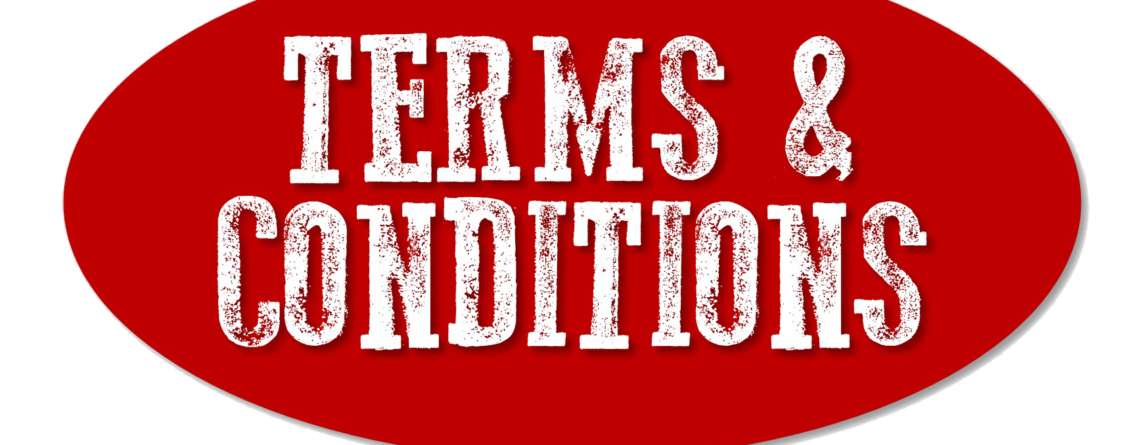WHY YOUR “TERMS OF USE” IS IMPORTANT.
Dear Subscriber,
In the last decade a lot of businesses have migrated online and it’s now commonplace for entrepreneurs to count website development as an integral part of the startup process. One of the most important but often overlooked parts of a website development project is the creation of Terms of Use page. Typically website owners pay scant attention to this page because of typical assumptions like: Does anyone ever read that mumbo jumbo at the bottom of websites? Do I really need to create a terms of use page for my small scale business website?
Whilst it is not mandatory to create a Terms of Use page, if you’re ever facing a legal battle arising from something related to the content or use of your website a Court will look at your website terms of use to determine the contractual terms between you and the user. This week we provide some basic guidelines about your terms of use and how to protect your business from liability arising from content or use of your website.
Terms of use act as a contract between the website owner and its users. This contract explains the basic rules of how the website can and can’t be used and anytime someone goes to your website, they are agreeing to be bound by the contract. To limit your liability, it’s important to have some level of control over how your website is used especially where your website allows user generated content like video sharing sites (Youtube, Facebook) or E-commerce Sites (Amazon, Konga, Jumia etc). But even if your website doesn’t involve user generated content it is still very important that there is a contract in place setting forth all the rules of using the site.
Basic Elements of Terms of Use
In general, the website terms and conditions should always include basic information on how the website works, how it should be properly used, and what activities are considered violations.
A well-drafted terms of use should identify all the important legal concepts involved with use of the site, and clearly explain how the website complies with the law, as well as what the consequences will be for users that fail to comply with the law. Depending on the type of website it is, there are also many more specific considerations that should be taken care of in the terms of use.
For example, if your website is focused largely on user generated content like YouTube, Twitter, or Facebook, it is essential that the terms and conditions clearly explain what content users are allowed to post and what they’re not allowed to post. You should also be clear about what happens to users that violate the rules.
If your website is an e-commerce business, there are many rules and regulations about pricing, fees, delivery, refunds, cancellations, and more. It is essential that any e-commerce website complies with these laws, and clearly explains its policies on these laws in the terms of use, in order to remain operational.
If you don’t regulate the use of your website, your users are free to use it how they please, including in ways that violate the law and you might be liable for these infractions. The best thing you can do to protect your website from liability is to have thorough, well-drafted terms of use in place. Some of the key provisions of well crafted terms of use include:
Limitation of Liability
Generally, it’s a clause that says you can’t be held responsible for any errors in content. For websites that allow visitors to post content to your website, you need to include clauses that limit your liability from offensive postings.
Intellectual Property
It is important to assert your ownership of all copyrights and trademarks contained in your website.
Privacy Policy
If you are collecting any information from your customers (such as email addresses or credit card information), you need to post a privacy policy. This outlines how information will be used or not used.
It’s also important to make sure that the terms of use are clearly visible and accessible to users from anywhere on the site. Putting a link in the footer is a pretty common and acceptable practice.
Conclusion
One of the simplest, yet most important steps to take to protect you from liability arising from content or use of your website is to have in place terms of use explaining how the site functions and how it is expected to be used. It is wise to have a Terms of Use statement for your website even if chances are that no one will ever read it, but it will certainly come in handy should any issues arise.
The content of this document is solely for information purposes only and should not in any way be construed as a legal opinion. If you require specific legal advice on any of the matters covered in this article please contact a professional.
MOTIVATIONAL VIDEO
We understand how tough it is being in business, so the “IOC Weekly” Editorial Team has decided to add inspiring videos to our weekly articles to juice up your week. We hope it serves the purpose.
Cheers,to a fruitful week.



